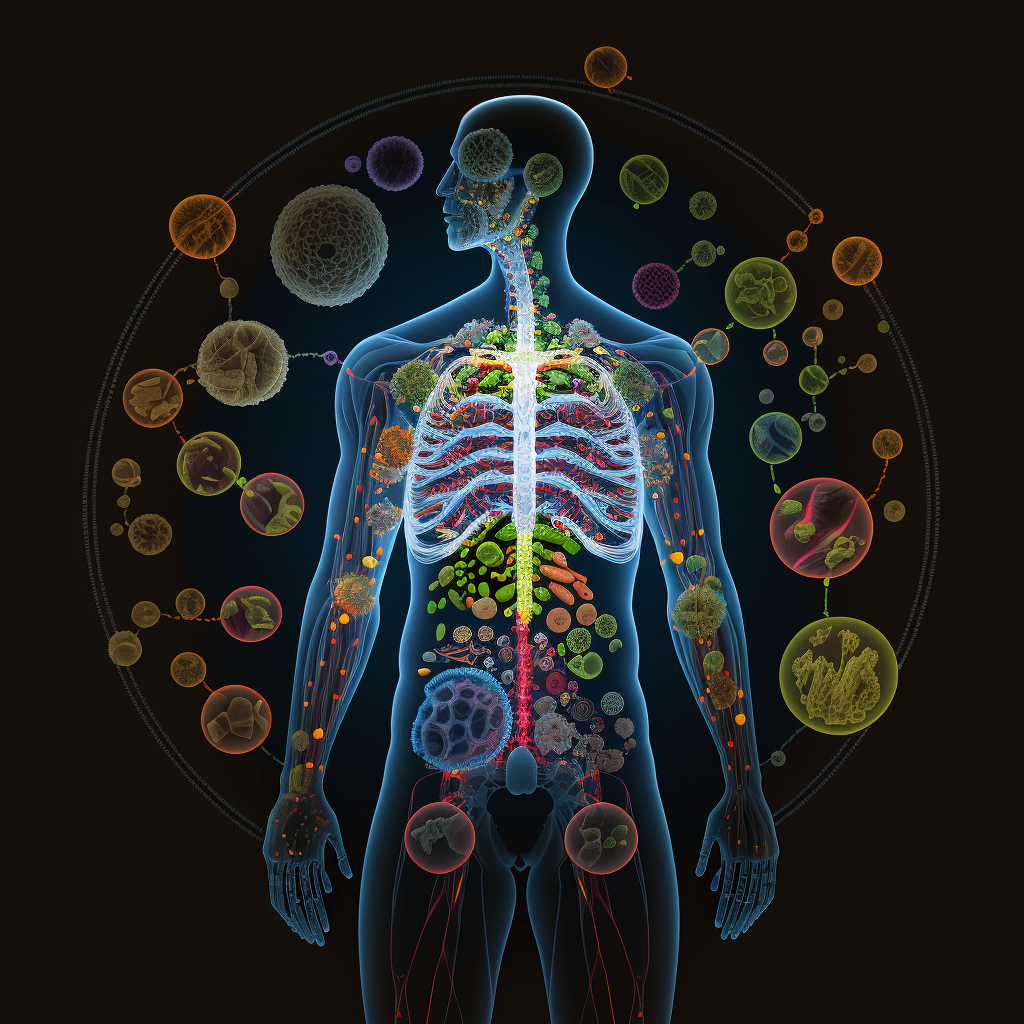 Our laboratory’s research focuses on studying the relationship between dietary intake, human microbiome, metabolomics and digestive diseases, as well as gastrointestinal cancers such as hepatocellular carcinoma and colorectal cancer. We utilize innovative methodologies to examine the role of biological and modifiable factors in digestive disease and gastrointestinal cancer prevention and evaluate the joint effect of diet, human microbiome and metabolites with digestive diseases or gastrointestinal cancers. Additionally, we investigate methods for integrating the microbiome with host factors for dietary interventions on digestive diseases or cancers.
Our laboratory’s research focuses on studying the relationship between dietary intake, human microbiome, metabolomics and digestive diseases, as well as gastrointestinal cancers such as hepatocellular carcinoma and colorectal cancer. We utilize innovative methodologies to examine the role of biological and modifiable factors in digestive disease and gastrointestinal cancer prevention and evaluate the joint effect of diet, human microbiome and metabolites with digestive diseases or gastrointestinal cancers. Additionally, we investigate methods for integrating the microbiome with host factors for dietary interventions on digestive diseases or cancers.
Current projects:
-
From Diet to MASH Fibrosis: How Microbiota and Host Molecular Profiles Interact and Influence Disease Severity
The goal is to comprehensively define the nexus between dietary patterns, gut microbiota, metabolomics, and proteomic signatures, assessing their collective influence on liver fibrosis severity. One pilot grant funding has been secured and there are a few other related grants are pending.
-
Longitudinal MASH Registry: Building an Infrastructure to Advance the Field
This MASLD/MASH registry is to provide exemplary clinical care to all patients with MASLD/MASH through standardization of clinical protocols and innovative clinical/translational studies and to elucidate molecular, cellular, immunological pathogenic pathways and predictors of disease progression (genetic/biomarkers/phenotyping algorithms). I have been serving as statistical core, nutrition core and microbiome core lead for the registry and biobank since 2022.

-
Beans to Enrich the Gut microbiome vs. Obesity’s Negative Effects (BE GONE) trial
The study aims to understand how increased bean consumption impacts metabolic health and cancer risk by examining changes in lipid metabolism, inflammation, and the gut microbiome. The trial uses a controlled diet approach, where participants are their own controls, to compare their usual diet with and without dry beans. I have been working with MD Anderson Cancer Center mentor- Carri R Daniel on this trial for several years.

-
A Study of Dietary Patterns Derived by Cluster Analysis and their Association with Nonalcoholic Fatty Liver Disease Severity among Hispanic patients
The study aimed to identify prevalent dietary patterns using cluster analysis and investigate their associations with NAFLD severity. We analyzed data from 421 Hispanic patients with NAFLD and identified two primary dietary patterns: a fast-food/meats pattern and a plant-food/prudent pattern. The fast-food/meats pattern was associated with a 2.5-fold higher odds of more severe steatosis compared to the plant-food/prudent pattern. The study highlights the importance of understanding dietary patterns among Hispanic patients with NAFLD for tailoring dietary interventions.
-
The association between acculturation, allostatic load, and non-alcoholic fatty liver disease in Hispanic adults: Analysis of the 2017-2020 National Health and Nutrition Examination Survey (NHANES)
-
Prevalence of HDV Testing Among HBV Patients in New York City

